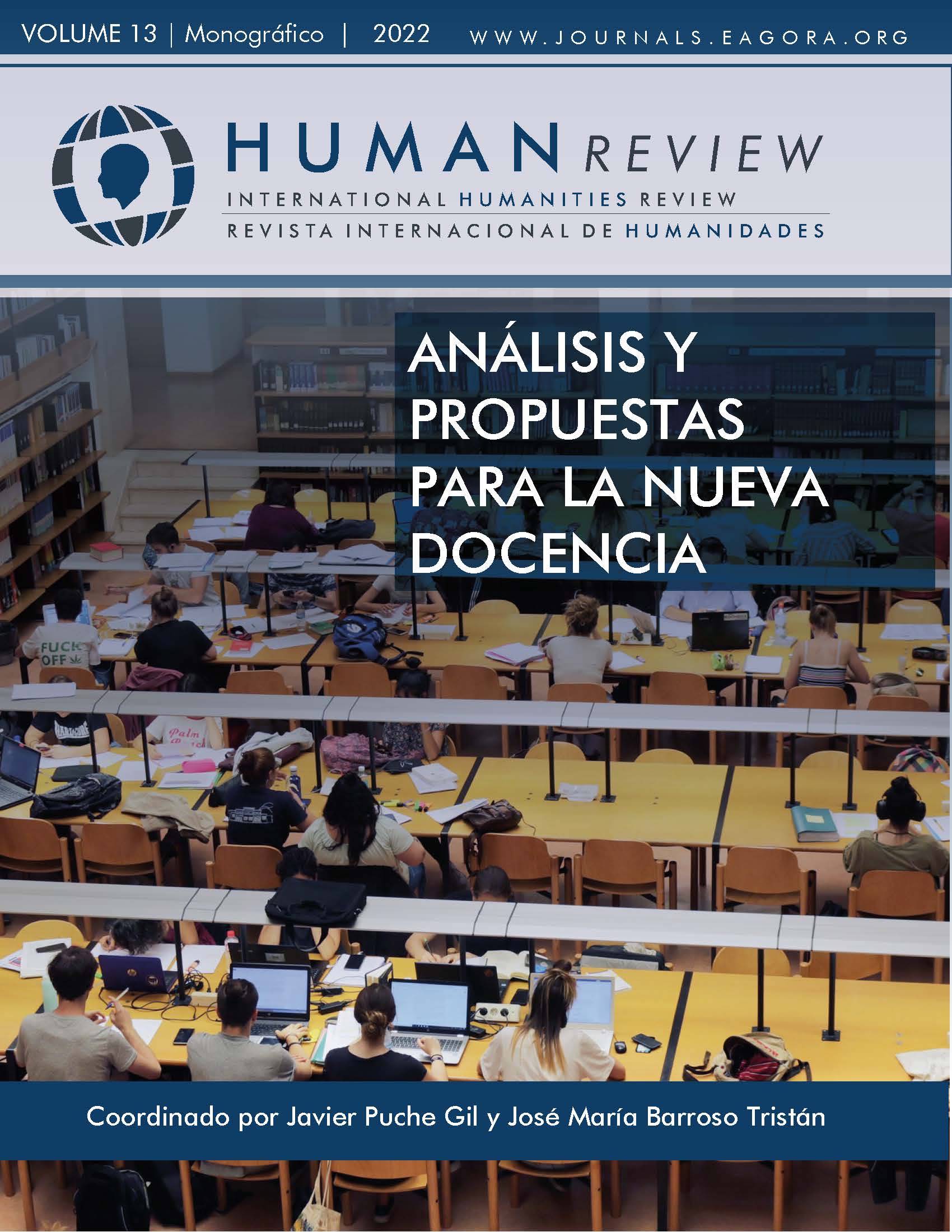Manage the talent of university actors through leadership and interest
Researchers and management positions
DOI:
https://doi.org/10.37467/revhuman.v11.4058Keywords:
Human talent, Leadership, Interest, Management, Higher education, Research, Succession planningAbstract
Talent management in higher education is key to quality education. This study aimed to understand and describe the categories that support the potentialization of the talent of researchers and to know the motivating interests of leadership development. It was conducted under the qualitative approach. We found that talent management is hindered by inefficient practices in recruitment, personnel selection, as well as the weighting of monetary incentives in researchers for their performance. It is recommended to address succession-planning studies in educational organizations to ensure the reserves of key talent.
References
Araya-Castillo, L., & Pedreros-Gajardo, M. (2013). Análisis de las teorías de motivación de contenido: una aplicación al mercado laboral de chile del año 2009. Revista de Ciencias Sociales (Cr), IV(142),45-61. https://www.redalyc.org/articulo.oa?id=15333870004
Arechavala, R., & Sánchez, C. F. (2017). Las universidades públicas mexicanas: los retos de las transformaciones institucionales hacia la investigación y la transferencia de conocimiento. Revista de la Educación Superior 46(184), 21–37. https://doi.org/10.1016/j.resu.2017.09.001
Bellou, V., Chaniotakis, I., Kehagias, I., & Rigopoulou, I. (2015). Employer brand of choice: an employee perspective, Journal of Business Economics and Management, 16(6), 1201-1215, https://doi.org/10.3846/16111699.2013.848227
Bhanupriya, K. (2015). Linkage between talent management practices & business performance in it sector of India. EPRA International Journal of Economic and Business Review. 3(5),116-118. https://www.researchgate.net/publication/349339283
Collings, D., & Mellahi, K. (2009). Strategic talent management: A review and research agenda. Human Resource Management Review, 19(4), 304-313. https://doi.org/10.1016/j.hrmr.2009.04.001
Cuevas, M., Fernández, M., Díaz, F., Gijón, J., Lizarte, E., Ibáñez-Cubillas, P., El., M., Ávalos, I., & Rodríguez, R. (2019). Liderazgo y calidad en la Educación Superior. EDMETIC, Revista de Educación Mediática y TIC, 8(2), 52-72.https://doi.org/10.21071/edmetic.v8i2.12120
Dakduk, S. y Torres, C. (2013). Los Nuevos significados del Trabajo. Debates IESA, 18(2), 25-28. http://virtual.iesa.edu.ve/servicios/wordpress/wp-content/uploads/2014/07/dakduk-torres-significados.pdf
Foucault, M. (1988) Sujeto y poder. Revista Mexicana de Sociología, 50,(3), 3-20. https://perio.unlp.edu.ar/catedras/cdac/wp-content/uploads/sites/96/2020/03/T-FOUCAULT-El-sujeto-y-el-poder.pdf
Gil, M., & Contreras, L. E. (2017). El Sistema Nacional de Investigadores: ¿espejo y modelo? Revista de la Educación Superior, 46 (184) 1-19, https://doi.org/10.1016/j.resu.2017.12.004
Gronn, P. (2002). Distributed leadership as a unit of analysis. The Leadership Quarterly, 13(4), 423–451. https://doi:10.1016/s1048-9843(02)00120-0
Ibarra, E., & Vries, W. (2004). La gestión de la universidad. Interrogantes y problemas en busca de respuestas. Revista Mexicana de Investigación Educativa, 9(22), 575-584. https://www.redalyc.org/articulo.oa?id=14002202
Jackson, C. K., Rockoff, J. E., & Staiger, D. O. (2014). Teacher Effects and Teacher-Related Policies. Annual Review of Economics, 6(1), 801–825. https://doi.org/10.1146/annurev-economics-080213-040845
Jara, A., Asmat, N., Alberca, N., & Medina, J. (2018) Gestión del talento humano como factor de mejoramiento de la gestión pública y desempeño laboral. Revista venezolana de gerencia. 23(83), 740-760. https://www.redalyc.org/journal/290/29058775014/29058775014.pdf
Joyce, W., & Slocum, J. (2012)Top management talent, strategic capabilities, and firm performance. Organizational Dynamics, 41(3), 183-193. https://doi.org/10.1016/j.orgdyn.2012.03.001
Londhe, B. (2016). A study of talent management strategies of educational institutes in Marashtra. International research journal of engineering and technology (IRJET), 3(5), 1345-1353. https://www.irjet.net/archives/V3/i5/IRJET-V3I5276.pdf
López-Hernández, R. E., Aquino, S. P., & Aguilar, N. (En prensa). Plan de sucesión para el relevo de profesores investigadores en universidades públicas mexicanas. Centro Universitario de Ciencias Económico Administrativas (CUCEA).
Morin, E. (2003) Sens du travail, santé mentale et engagement organisationne. Études et recherches. http://www.irsst.qc.ca/media/documents/pubirsst/r-543.pdf
Muijs, D., & Harris, A. (2006). Teacher led school improvement: Teacher leadership in the UK, Teaching and Teacher Education. https://doi:10.1016/j.tate.2006.04.010
Muñoz, H. (2011) La universidad mexicana en el escenario global. Perfiles educativos, 33 (número especial), 21-33.http://www.scielo.org.mx/pdf/peredu/v33nspe/v33nspea3.pdf
Olaskoaga-Larrauri, J., Rodríguez-Armenta, C. E., & Marúm-Espinosa, E. (2020). The direction of reforms and job satisfaction among teaching staff in higher education in Mexico, Teaching in Higher Education. https://doi.org/10.1080/13562517.2020.1819225
Perdomo-Ortiz, J., Valencia, C., Durán, W. F., & Heredia, O. (2020). Effect of High-Performance Work Practices on Academic Research Productivity. Latin American Business Review, https://doi.org/10.1080/10978526.2020.1837632
Programa de las naciones unidas para el desarrollo [PNUD]. 2022. Los ODS en acción. PNUD. https://www.undp.org/es/sustainable-development-goals.
Rhodes, C., & Brundrett, M. (2012) Retaining leadership talent in schools. International Studies in Educational Administration, 40(1), 19-34. https://cceam.net/wp-content/uploads/2019/01/ISEA_2012_40_1.pdf#page=25
Saldaña, J. (2021). The coding manual for qualitative researchers. SAGE Publications Ltd.
Tyagi, S., Singh, G., & Aggarwal, T. (2017). Talent management in education sector. International Journal & Informatics (IJCI) 6(1/2), 47-52. https://doi.org/10.5121/ijci.2017.6206
Yukl, G. (1999). An evaluation of conceptual weaknesses in transformational and charismatic leadership theories. Leadership Quarterly 10(2), 285–305. https://www.sciencedirect.com/science/article/pii/S1048984399000132
Downloads
Published
How to Cite
Issue
Section
License
Those authors who publish in this journal accept the following terms:
- Authors will keep the moral right of the work and they will transfer the commercial rights.
- After 1 year from publication, the work shall thereafter be open access online on our website, but will retain copyright.
- In the event that the authors wish to assign an Creative Commons (CC) license, they may request it by writing to publishing@eagora.org









